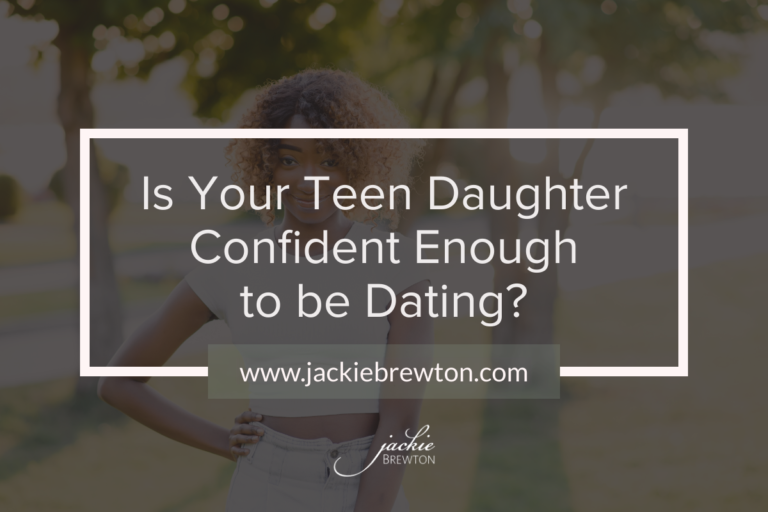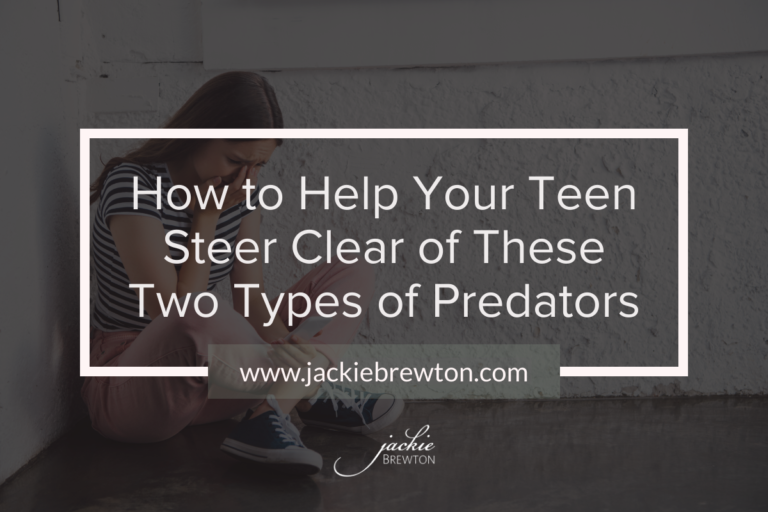Why You Never Want Your Daughter to “Stand Up” for Sexual Assault

Over the past few years, the college campus rape culture has captured national attention like never before due to several high-profile cases.
And that’s a good thing.
The more awareness brought to the issue, the better.
But if we really want to address the problem?
We first have to recognize that sexual assault doesn’t just become an issue once our kids get to college.
The same “culture” exists in high school.
…And in middle school.
…And for many, even at home.
According to the Rape, Abuse & Incest National Network (RAINN):
- Girls ages 16-19 are 4 times more likely than the general population to be victims of rape, attempted rape, or sexual assault.
- And every 8 minutes child protective services substantiates a case of child sexual abuse.
Every 8 minutes…
And those are just the ones that are reported.
The sad reality?
Many adults have no clue how common sexual assault is with our children.
I didn’t either at first.
Plus let’s be real, it’s one thing to hear the statistics.
It’s something else to receive gut-wrenching letters from girls who’ve survived it.
“One thing that I did not expect is for you to bring up the topic of rape. It honestly surprised me. Even though you were talking about someone else, it felt personal. I was assaulted my sophomore year and hadn’t told anyone until my junior year. Now, in my senior year, I told my parents and we went to the police. The boy who assaulted me was a close friend prior to the assault; we also had consensual sex before. In my mind, that made my trauma invalid. I have depression already and this made it worse to the point that I tried to end my life. After going to the police, they couldn’t do anything about it. It made me furious because I felt like they thought I made it up or didn’t fight hard enough. Just a week before you came in, I was down on myself. When you said that rape victims aren’t broken, I felt like a weight was lifted. I appreciate you taking time out of your day to speak to our class. Your words meant the world to me.”
Letters like that and girls bawling in my arms served as my wake-up call.
And I’m hoping today’s post, and next week’s will be yours.
April is Sexual Assault Awareness & Prevention Month and this is the first of a special two-part series I’m sharing to sound the alarm.
FOR YOUR DAUGHTER’S SAKE.
I wish when I first started teaching healthy relationships to teens, I would’ve spent more time talking about sexual assault.
But again, I didn’t realize the need was so great.
Fast-forward 16 years, and now I kick-off my assemblies addressing it.
How?
With an eye-opening activity I call, “Please stand up if…”
Standing Up for Sexual Assault
I often separate my assemblies by gender so I can speak to the specific needs of each one without alienating the other.
Whenever I speak to all-girl groups, I ask them to “Please stand up if…”
- you know a teen girl who has sent a nude or semi-nude picture to someone on her cell phone.
- you know a teen girl who is being pressured to have sex.
- you know a teen girl who is sexually active and wants to quit but is afraid or doesn’t know how.
- you know a teen girl who is or has been in an abusive relationship.
- you know a teen girl who has been raped or molested.
- you know someone who had sex as a teenager and had to deal with negative consequences.
When they stand up for sexual assault, this is what I often see:
 [The picture above was taken at an assembly of 8th-grade girls.]
[The picture above was taken at an assembly of 8th-grade girls.]
Every single time I do this activity, 40-60% of the audience will stand up.
I look around at their faces.
Collective shock is the best way to describe it.
The girls realize for the first time that other girls have either been in their shoes or know someone who has.
The teachers, counselors, and administrators?
They realize for the first time just how widespread a problem sexual assault is among their students.
Mission accomplished.
My “Please Stand Up If…” activity serves a purpose.
While I want girls, who are survivors of rape, sexual abuse or molestation to know they are NOT alone.
I need the adults in the room to know that our girls need our help!
And we can’t combat this issue until we start having the tough conversations with our kids.
How to Have the Tough Conversations with Your Daughter
No mother wants to imagine even the possibility of her daughter being sexually assaulted.
Let alone talk about it.
It’s unthinkable.
I get it, Mom.
I don’t want to talk about it either.
But letters like this remind me why it’s a good thing to talk about it:
“Thank you so much for coming to our class to speak to us. You really opened my eyes to a lot of things, and I’m not just saying this; it is because it’s the truth. At the age of 7, I was molested and almost raped. Until this day I still get embarrassed. I did get promiscuous when I got older around 15 and lost my virginity because I didn’t value myself. When you spoke it was everything I needed to hear and opened my eyes a lot. I know now that I am worth something.”
Talking to your daughter about rape and molestation will probably be the toughest conversation you’ll ever have.
Especially if it turns out that she’s a survivor.
But how would you know if you don’t talk to her about it?
Many of my students’ mothers had no clue their daughters had been assaulted.
Their daughters only opened up to me because we had the conversation in class.
I can help you do the same with your daughter at home, with my How to Have the Tough Conversations e-course.
No more avoiding the uncomfortable topics of rape/molestation, pornography and how to talk to your daughter about abstaining when you didn’t.
The e-course will coach you through the process step by step.
AND I reinforce what you discuss with your daughter by speaking directly to her and serving as your virtual back-up.
It’s a win-win Mom!
Go here to sign-up for the How to Have the Tough Conversations e-course today!
P.S. I know it’s tough talking to your daughter about sexual assault. But given how common it is, she can’t afford for you not to. I don’t claim to have all of the answers, but I can help you start the conversation. And that’s the first step.
P.P.S. The next step is to come back next week for Part 2 of my series for Sexual Assault Awareness & Prevention Month. And please share this post on your social media with your friends.



